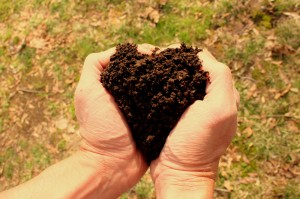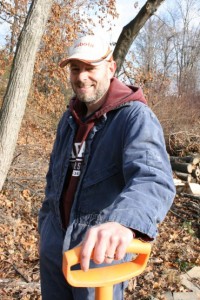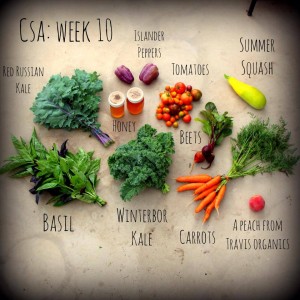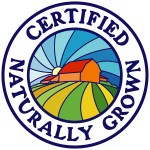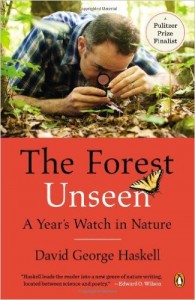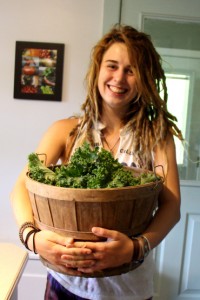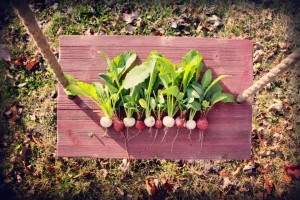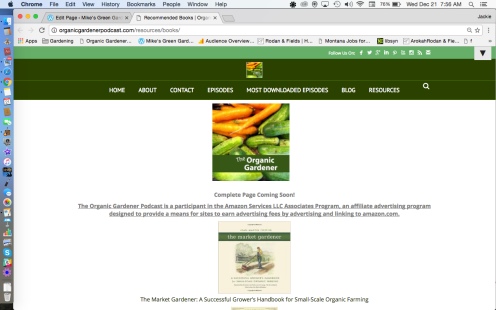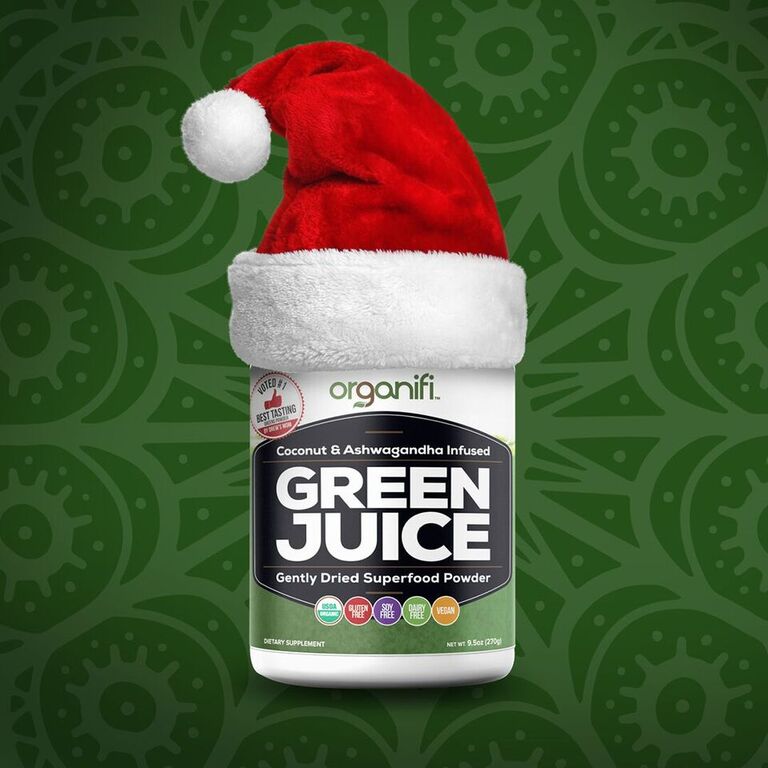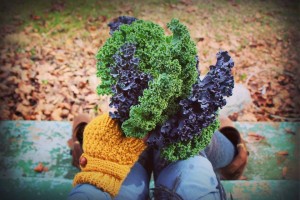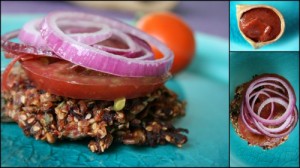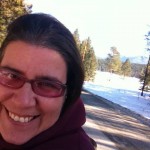Replay of 111. Certified Naturally Grown Program | Amazing Heart Farm | Elizabeth Weller | Orrtanna, PA
Amazing Heart Farm • Healing Work • Healthy Eating • Sustainable Agriculture
Elizabeth Weller is here to share her amazing and bountiful journey from a religion and philosophy major who danced between the two worlds of farming and social work finding a balance where she can help people nourish their bodies and heal their spirits. A new mom of a beautiful little girl this year she is helping at the student Painted Turtle Farm at Gettysburg College or helping with the CSA at her own Amazing Heart Farm where they work on building community through healing work, healthy eating and sustainable agriculture. She is also an active board member of the Certified Naturally Grown Program.
Tell us a little about yourself.
Well just a little background to start off with I received my Undergraduate Degree from Sarah Lawrence College in Bronxville, NY. There weren’t really an majors at Sarah Lawrence you were just encouraged to explore your interests and to find an area of study to concentrate on. My first year studies class was called the philosophy of religion. And in that class which was completely life changing and it was in that class that I was first introduced to the writings of Wendell Berry.
Wendell Berry
Wendell Berry is a farmer, and he’s also a teacher and writer and environmental activist and an advocate for local food economies. And his writings first interested me in farming, so then I took a year off from college between my sophomore and junior year. I wanted to do some traveling. I spent 6 months at the Rocky Mountain NAtional Park in Estes Park, Colorado. Then I spent a month at the Zen Mountain Monastery in Mount Tremper, New York, and then I went to Tasajara Zen Center in Carmel Valley in CA.
When I returned from that I met up with a friend who I’d met in Colorado. who was studying at Shepard College which is about 20 minutes from my home town it’s in Shepherdstown, West Virginia. I grew up in Wainsborough PA, small town in MD border. She told me about a local farmer who was recruiting students to get a tree farm and an apple orchard. She invited me to join them. And I did and I really enjoyed about growing food and being part of a business that provided food for the local community. But I think more importantly, I had a really powerful experience of the work on the farm of it’s rhythm and it’s physicality and the community built around it, it’s healing.
Farming as a Therapeutic Tool
And it’s from that experience that I first became interested in farming as a therapeutic tool and spiritual practice.
So when I returned to Sarah Lawrence, I really focused my studies on these ideas, and I ended up writing a senior thesis, which was kind of an optional thing. And I focused in on what I call the “nature of dialogue” and being in relationship with ourselves, each other and the land.
I explored the idea that community is something not only includes our relationships with each other but also our relationships with our watershed and our food systems and the environment in which we live. And how the health of our environment directly reflects our individual and collective health.
Combining Farming and Spirituality
After I left Sarah Lawrence College I really wanted to find someway to combine farming and spirituality or somehow use farming therapeutically. I worked for a summer down in Lexington, Virginia working, just interning at a small little retail farm. Then I found a job at a place in Gould Farm which is located in the Berkshires in Massachusetts. Its a residential therapeutic community for people who are suffering.from various forms of mental illness and its based built around a model of recovery from that’s centered around using community and work as a therapeutic tool.
I was a work leader in the harvest barn, I was in charge of a small group of people in ages anywhere from 18-70 and our job was to process all of the food that came in from the garden. We worked in the garden a little bit, we mostly focused on blanching and freezing the vergetables that came in from the garden but mostly we were making mint teas and pumpkins butters. It was a great experience but it was such a huge organization, there were probably 150 people living there, there were therapists on staff, you know it didn’t help me figure out how to start something like it, slightly naive and initial goal in going there.
So I left after my year was up, it was an amazing experience but I was a little disheartened at the idea of starting up something of my own. I decided to stay in that area, but I ended up I got a job teaching english and in the mean time I met my husband and got married.
Getting a Masters Degree
I decided to get my masters so we moved to Boston so I could go to Harvard Divinity School. It was at Harvard Divinity School that my interest in farming renewed and I met some like minded people. My favorite being Serving Ourselves Farm which is a 4 acre plot of land located on Long Island which is part of the Boston Harbor Islands. It’s part of the Long Island homeless shelter, the farming, it’s people just getting back on there feet. It went really well with my studies at Harvard Divinity School in pastoral counseling, and ethics and education and Christianity and Buddhism.
I think it was in April of 2008, my husband and I really committed,we bought the place where we are now, it was a year before I graduated from divinity school We decided we were just gonna go for it and do the homesteading thing and try it out. My initial goal was to an agricultural based center for individuals who impacted by some sort of trauma or loss. My goal wasn’t and it still isn’t necessarily to get involved in production agriculture but I realized in order to have an agricultural based educational or therapeutic space I needed to establish it as a farm.
Community Supported Agriculture Program
I spent the next couple of years immersed in gardening books and classes at the agriculture center and meeting with local farmers. In 2010 we were cultivating maybe a quarter of an acre for 14 shares in our CSA (Community Supported Agriculture) program. By 2012 had over an acre in production and our CSA had grown to 40 members.
So while I do still have that long term goal to use this space to help individuals who have undergone trauma or loss of the past 2 years, my vision has kind of shifted to what that would look like. I think as it has involved, I basically aim to include all who are interested in participating in the compacity that best serves their needs and abilities. So as people need it and the opportunity arises the space is here, essentially. I think at this point for me, engaging our CSA members is the most rewarding aspect of running our CSA program.
We’ve enjoyed sharing the space with CSA members for volunteer days and potlucks. We’ve had Built in Christ, Mindfulness movement kind of yoga/tai chi type thing and effortless gardening retreats and meditation retreats that are both open to public and CSA members. We’ve had different cooking classes run by CSA members so that’s a little bit about the CSA program.
Certified Naturally Grown
The farm, sustainability aspect is really important to us! We’re Certified Naturally Grown which is a grassroots alternative to certifed organic. We have a soil conservation plan for the NRCS, the farm service agency. In 2012 we installed our second high tunnel, which is an experiment, kind of in progress. We installed hugelkultur which is an account form of sheet composting in which rotting wood and organic material are buried under mounds of top soil, so as that rotting wood decomposes it increases soil fertility and improves drainage and moisture retention, and produces heat.
Sometimes it’s above the soil what we did, because we found out that whenever we cleared the area for the high tunnel that section of property is clay soil we decided to dig out under the high tunnel, so we dug out like 2 1/2 feet and filled it with 30 cords of wood, I think 40 midsize bales of hay, that was already decomposing, 25 yards of peat mulch and 40 yards of mushroom soil. Which I wouldn’t do the muchroom soil again becasue it really increased the salts since it’s covered.
It’s really decomposing to a really nice soil, It used to flood. Right before Hurricane Sandy came through, it didn’t flood at all. We we’re really amazed because the area really used to flood. The other thing we did is we started seedlings in a greenhouse. The walls of the greenhouse we’re made of polycarbonate plastic siding, So it uses a passive solar heating system during the day and the solar thermal system keeps the floor temp in the greenhouse between 80º-90º during the winter months. And in the summer time that excess energy is tied into a system in our house to keep hot water. That’s a little bit about the farm and some of my philosophical beliefs.
I think listeners are gonna love this because I know I am. You traveled a lot and have a lot of experiences and I think that makes your place a special place because you took your time putting it together. I remember my mom always hearing stories about Carmel, California.
Yes it’s a beautiful place a really special spot.
Tell me about your first gardening experience?
I grew up gardening, but it wasn’t really vegetables, I grew up. My parents had a lot of gardens but mostly flowers, I just remember weeding a lot! I feel like my very first gardening experience was really the experience I just described just now. Going to the apple orchard and working on the apple orchard and tree farm. I don’t remember, my mom might have had a few tomatoes, but I just remember weeding the flower beds and thinking of it as a chore when I was growing up.
What does organic gardening/earth friendly mean to you?
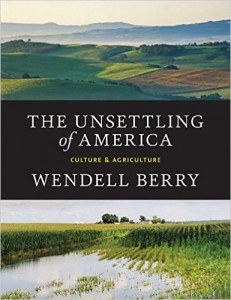 There’s a great quote from the The Unsettling of America: Culture & Agriculture by Wendell Berry where he says,
There’s a great quote from the The Unsettling of America: Culture & Agriculture by Wendell Berry where he says,
“The farm can exist only within the wilderness of mystery and natural force. And if the farm is to last and remain in health, the wilderness must survive within the farm. That is what agricultural fertility is, the survival of natural process and human order.”
When I think of organic gardening is about paying attention to the natural process. I think it’s about learning the names of things, or recognizing and respecting who we live among the plants, insects, rocks and rivers and the soil. I feel that I’m must a begnnier of that. There’s this book I am reading The Forest Unseen by David Haskill.
Where he writes about taking a small section of the forest in the shape of a mandela and studying it for a year. Down in Tennessee he’s a biologist and every day he observes then he writes a book about it. It’s just fascinating! There’s just so much to learn from our backyard to learn from nature it’s important that we retain a beginners mind, that we don’t just run out and make changes without thinking about the consequences. That’s what I think about what og/ef gardening means.
I like that! Before I started my podcast I had never heard of Wendell Berry, and for some reason I just read a whole bunch about him? I can’t remember if it was a website or what? I’m glad you brought that up. I think its a good time because with winter people are into reading gardening books right now.
Naturally Grown Certification
As far as certifications, we are certified naturally grown which is a grassroots alternative to certified organic. I sit on the board of directors for Certified Naturally Grown. It’s an organization that I believe in. Certified Naturally Grown assures that food is produced as such without synthetic chemicals or Genetically Modified Organisms. It has a unique peer review certification process that is affordable which is a big deal for small farmers like myself.
But more importantly being involved with Certified Naturally Grown has been an effective way for me to engage community members around growing healthy food and farming sustainably. It’s been an way for me to network with and learn from other farmers, and to teach interns and students and my CSA members not only about what my growing practices are, but also about why these practices are of value.
Engaging Community Members
For example, maybe a year or two ago we were having an inspection here. There was a student who was volunteering, and she happened to be here during the inspection. One of the questions, they they just actually tell you to go out and tell you to dig for some earth worms because that is an indicator of healthy soil.
So we grabbed a pitchfork and we went out and found some earthworms. And I had this student. she was a little squeamish, she wasn’t so sure about the worms. So we explained that worms are like little plows and they help aerate the soil, they build the soil fertility you could kind of see her perspective shift, it was just a wonderful example of a teaching moment, and it was just one of many opportuiities, of being able to describe earth, to explain the way we that we do and why its of value.
Then the other thing about Certified Naturally Grown a lot of times people ask how is it different then certified organic. One of the obvious things is the is the peer review system, inspection system. Another other thing is Certified Naturally Grown, is specifically for community based farms selling to local markets not for agribusiness operations markets for wholesale markets and not processed food manufacturers.
It does require less paper work has lower certification fees which is pretty cool. I’m pretty proud to be part of the organization.
I think that is an important gardening today and giving people an option. I think in a lot of ways it almost means more then the certified option and I’m glad there’s other options out there. Glad that your sharing that, I think it’s growing around the country and that your a board member is a wonderful thing! I hope if people have questions they’ll reach out to you.
Who or what inspired you to start using organic techniques?
I think being introduced the idea that I want to farm, being introduced to the idea by Wendell Berry, I didn’t know another way. It’s not like I was introduce through conventional means, all the farms I have interned on or worked on have been organic or earth friendly if they hadn’t been certified organic, they used natural practices. So I really didn’t know it was just the obvious.
How did you learn how to garden organically?
The main person who taught me was this guy at the Serving Ourselves Farm, his name was Jean Claude I don’t think he is there anymore, he was a former chemist for the agriculture industry he was so turned off.
he was from France. Became an organic farmer. He taught me the basis of all of my knowledge, he’s been very generous with his knowledge. He shared all of his spread sheets and his farm charts and maps, so then I basically took that knowledge and then took classes at the ag center and reading books and talked to local farmers back here. He’s the main person who taught me what I know.
I like the way you seem to be very interested in pursuing a higher education and knowledge about the things that you get involved in. That’s awesome!
Tell us about something that grew well this year.
Well, here I was actually on maternity leave!
Oh Congratulations!
I have a 7 month little girl named Hannah, but I am a consultant for Painted Turtle Farm which is at Gettysburg College, they have a student run campus farm.
Probably the Rib Kale, that grew beautifully rows of it! Abundantly!
Is there something you would do different next year or want to try/new?
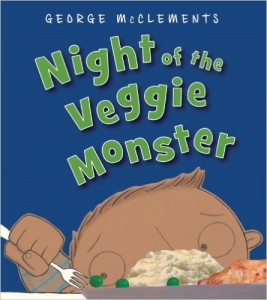 I think I wanna try, you know, tho, I say this every year, I want to try Purple Peas.
I think I wanna try, you know, tho, I say this every year, I want to try Purple Peas.
Purple peas? That sounds like a book?! Today we read a book about a little boy who wouldn’t eat peas until he finally tried them.
Oh yeah!
Every year, whenever I’m picking peas, every time I keep finding more. Every year, I say this would be so much easier and faster if these were purple! I’m gonna try to find an organic variety.
So there really are purple peas? Are the pods purple?
Yes just the pods.
But probably not the peas. I remember the first time my husband canned the purple beans and they turned green when they were cooked. I was like Awww…. I can’t wait to tell my kids about this tomorrow at school they’re gonna be so excited!
Tell me about something that didn’t work so well this season.
The cauliflower didn’t do so well, I’m not quite sure why, we had a few that did ok, but most of the heads of cauliflower just turned brown. I want to spend some time finding out what happened, I looked up little and it could have been not having enough boron in the soil. We were pretty unhappy about that, I’m gonna do some more research, so we’re more successful next year.
I’ve had a lot of people talk about how important it is to test your soil. Minerals are missing, a lot of people who have been selling and running a farm for the public for a while it seems to a big key to their success. So that’s a good place to start. I liked the way you talked about hugelkulture. You gave a really good explanation for listeners that maybe have’t heard of it.
Something that you find is easy to grow and is generally successful every-time.
Radishes, every spring and fall, and they don’t take long.
Potatoes and lettuce
Do you just grow the red radishes, or the white ones. One year in NY I got these watermelon radishes. Have you tried them?
I have had them but haven’t tried to grow them. I grow the Easter egg radishes, and the Davingnon. Those are the main 2 that I grow.
Something you would steer new gardeners away from that you find is typically challenging to grow in your climate?
I don’t think i would steer new gardeners away from anything, just because, certain things do better in different years, and I could go half a mile down the road and something that’s not doing well in my garden could be growing beautifully down the corner and vice versa. Maybe don’t plant 200 feet of it…
That’s awesome. That’s the greatest advice!
Try it out.
Let’s take a minute to thank our affiliates!
Recommended books on the Organic Gardener Podcast
The Organic Gardener Podcast is a participant in the Amazon Services LLC Associates Program, an affiliate advertising program designed to provide a means for sites to earn advertising fees by advertising and linking to amazon.com
Now you can get an Organic Gardener Podcast discount at organifi.com use promo code OGP16 (that stands for Organic Gardener Podcast 2016) at checkout for a 15%discount!
organifi.com
use promo code OGP16 at checkout for a 15%discount!
Let’s Get to the Root of Things
Which activity is your least favorite activity to do in the garden?
Watering. I’m not a fan of setting up irrigation, or hand watering, I’d rather just let the rain take care of it, sometimes you have to intervene. Sometimes I can get my husband to go out and do the watering.
My husband probably thinks that way, sometimes I can get my wife out there! I understand, we’ve had a water shortage forever. If we’re lucky a hose usually a watering can. I feel your pain there.
What is your favorite activity to do in the garden?
Love to plant, I love to harvest, I love to start seeds, I love to weed too. I don’t like it when the weeds are out of control, and you feel totally overwhelmed, and have a long list of other things you need to do. But there’s something kind of meditative about weeding, basically everything else I love to do. The construction stuff, constructing the hoop houses, my husband managed those projects. When it comes to harvesting, transplanting, mapping out and planning the garden and all of that, I love all of that stuff.
Got any secrets for mapping out or planning your garden as people are probably gonna be doing that with January coming around the corner. Are there any tips or strategies that you follow?
It seems to be a little different every year. I follow a basically on what I’ve done the previous year. There are some good spread sheets at different websites, there’s one Growing Small Farms which is part of the North Caroline Extension they have some good spreadsheets that I have used in the past that I used for the base of my record keeping and planning.
Tell us about the best crop you ever grew.
The kale this year at Painted Turtle Farm. We still have more kale then we know to do with, because it’s been so warm and it’s still warm, we have an abundance of kale.
What is the best gardening advice you have ever received?
To take it one day at a time.
That’s good!
A favorite tool that you like to use? If you had to move and could only take one tool with you what would it be.
Probably a pickax. Probably my favorite tool. That and sunglasses and a hat.
What do you use a pickax for?
I use it to plant to make the furrows in the beds to plant seeds.
I’ll use it to get the weeds, sometimes you just find a sapling in the middle of the garden that seems to come out of nowhere and you need a pickax to get it out. Or something with a long tap root or sometimes I use it to shape the beds. I do a lot of work by hand not by tractor. Sometimes to shape the beds. I feel like it’s useful for a lot of things.
Do you have any secrets for preserving food-making it last?
We do some canning mainly of tomatoes, we’ll make sauce and salsa. If you have the freezer space, the easiest, thing is if you have the freezer space, is freezing. I’ve frozen whole tomatoes
putting them under water and the skins peel off
I’ve also grated zucchini and then you have frozen zucchini use for breads and soups. Do you know pickyourown.org? That’s a great resource for food preservation. They have a list of farms where you can look up what’s close to you where you can pick your own fruits. They have lots of different resources.
Do you have any special techniques for cooking weird or unusual foods or weird or unusual techniques for cooking ordinary foods?
Kohlrabi is one of my favorite vegetables and I get a lot of questions about Kohlrabi. I’m pretty simple when it comes to cooking. My favorite way is to just eat it raw. So my advice is always to just peel it with a knife. Cut it into thin strips and eat it like carrots or celery and just eat it like that.
Cool I like that, I’ll bet people are going I never knew what to do with that and now they do.
How about a favorite recipe you like to cook from the garden?
Amazing Heart Farm beet burgers with homemade ketchup
I love making beet burgers.
Beet Burgers?!! Tell me how to make beet burgers!
Beet Burgers
- beets grated
- quinoa pre-cooked
- sunflower seeds
- sesame seeds
- onion
- soy sauce
- bread crumbs
- olive oil
Those that’s just grated beets, then you add cooked quinoa, sunflower seeds, sesame, onion, soy sauce, bread crumbs, olive oil. I think the recipe’s on my website. I bake them. and then you flip them 1/2 way through.
What do mean bake them?
I just put them in the oven. You could fry them.
Massaged Kale Salad
- curly kale
- lemon juice
- salt
- cranberries
- nutritional yeast.
Then another favorite, it’s just a simple recipe one of my interns turned me onto a few years ago. A simple managed kale salad. With the curly kale add a little lemon juice, and salt and cranberries and nutritional yeast. Just massage it all together.
I like that with cranberries. Dried cranberries like raisins?
Craisins yes.
I was just thinking today why don’t I have any of these in the house?
A favorite internet resource?
Are you familiar with the food project? Probably the food project? located in Boston
grad from Harvard Divinity school
They have this section on their website called the toolbox you can just download files
They have a youth program, like an after school youth program for farming. They have
listed out how their youth program works also have crop plans and field maps That’s another good resource for record keeping things download anything
I just talked to the School Board Member from my school asked me if were gonna start the greenhouse after Christmas, I thought it was early but he said it’s heated and they usually are getting the geraniums going in January?
A favorite reading material-book, mag, blog/website etc you can recommend?
I like Elliot Coleman’s all of his books are helpful.
My favorite kind of blog right now is roughdraftfarmstead. It’s 2 farmers and they’re new parents and they are homesteading and living off grid, and they write a blog about it, basically. I check in on it periodically. IT’s called rough draft farmstead
Like rough draft? Like the first draft? Cool, I’ll have to look into that. Where are they do you know?
Kentucky.
If you have a business to you have any advice for our listeners about how to sell extra produce or get started in the industry?
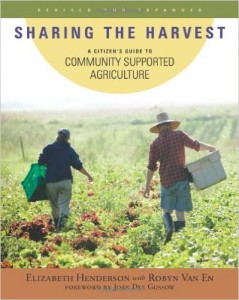 What I did is I just started small and built gradually. I used the CSA model which has worked out really good for me. So if anybody’s thinking of going that route there’s a great book called Sharing the Harvest by Elizabeth Henderson and Robyn Van En
What I did is I just started small and built gradually. I used the CSA model which has worked out really good for me. So if anybody’s thinking of going that route there’s a great book called Sharing the Harvest by Elizabeth Henderson and Robyn Van En
Another resource would be Wilson College, which is just 30 minutes away from me they have the Robyn Van En Center? Reading resources and downloadable files that you can look at on their website about CSAs. That’s really only model that I know. That’s the route that I went.
When you started, how many customers did you have to start?
I had 14 the first year.
That sounds like a good group.
It was a good starting number. Now I have 40, for an acre that’s pretty good.
Final question
If there was one change you would like to see to create a greener world what would it be? For example is there a charity or organization your passionate about or a project you would like to see put into action. What do you feel is the most crucial issue facing our planet in regards to the environment either in your local area or on a national or global scale?
Well, there’s a quote that I stumbled on the other day by David Orr, where he says, “the plain fact is the planet does not need more successful people, it does desperately need more peacemakers, healers, restorers, storytellers and lovers of every kind. It needs people who live well in their places. It needs people of moral courage who are willing to join the fight to make the world habitable and humane, and these qualities have little to do with success as we have defined it.”
That’s the end of the quote. I think that’s kind of it. In our culture we are really focused on getting somewhere and becoming something other then what we are. I think we focus on glamor and fame. I think the qualities that we need in healing the planet and healing ourselves are humble and from the heart.
Amazing Heart Farm Story
there’s this story I wrote in the first grade and it’s called The Amazing Heart Book, that’s why I called the Amazing Heart Farm the Amazing Heart Farm each page is covered with huge images of hearts, hearts with little stick figures in all these colors. And the story reads:
This is the heart of love and the heat of spirit, it is the most important thing. If you touch it you will be powerful, when you climb it you are in a beautiful magic land. I know my heart, I love this heart.
I wish I could go there, but it is blocked.
And then below that, on the last page there is a drawing of myself as a young girl and my arms are kinda, stretched towards the sky, and I stand facing this rainbow colored heart the size of a mountain and it’s blocked from my reach with this wall that is scribbled with a black crayon.
And for me the language of the story speaks to me for what we need most as human beings, it’s kind of a relationship with ourselves and the others and the land. It’s about reconnecting, with what we value and hold sacred. I think that when we do this within ourselves we become more compassionate with all of life.
Success
The other thing I think that needs to happen is for us to kind of let go of this notion that to be successful when we grow up, we have to leave home, that we have to go out into the world and make something of ourselves. I’m not saying that it’s not ok to leave and go off to college and to travel and do all the things that we do. I think that those are important.
But I think we’ve created a sense of restlessness, a sense of always looking to be always looking for the next best thing. I think it’s important to set down roots and to really come to know and love a place and a community because how can we live in a community? And by community I mean our neighbors and our watersheds and our food sheds, but how can we live in community if we move every 3 years?
Having a sustained commitment to one place means that we’re responsible for that place and if everyone cares about and for where they are I think their relationships with each other and the earth would be much healthier. That’s kind of what I would like to see, changes.
That was beautiful.
How do we connect with you?
You can connect with me on Facebook. and my website is amazing heart farm.com and Facebook just google amazing heart farm and my email is also on my website if you’d like to contact me.
I think listeners are really gonna connect, they didn’t just learn a lot but I think you touched our hearts the way we think about the planet and its just nice to hear somebody else out there doing their thing and sharing your voice with us today, I know listens didn’t just learn a lot and the way we like to be and are probably touched spiritually and inspired too.
Recommended books on the Organic Gardener Podcast
Amazon
The Organic Gardener Podcast is a participant in the Amazon Services LLC Associates Program, an affiliate advertising program designed to provide a means for sites to earn advertising fees by advertising and linking to amazon.com
Remember you can get an Organic Gardener Podcast discount at organifi.com use promo code OGP16 at checkout for a 15%discount!
organifi.com
use promo code OGP16 at checkout for a 15%discount!
If you like what you heard on the Organic Gardener Podcast we’d love it if you’d give us review and hopefully a 5 star rating on iTunes so other gardeners can find us and listen to. Just click on the link here.
We’d love if you’d join Organic Gardener Podcast Facebook Community!
To learn about the iTunes giveaway visit our website at the organicgardenerpodcast.com

If you like what you heard on the Organic Gardener Podcast we’d love it if you’d give us review and hopefully a 5 star rating on iTunes so other gardeners can find us and listen to. Just click on the link here:
https://itunes.apple.com/us/podcast/organic-gardener-podcast/id962887645

